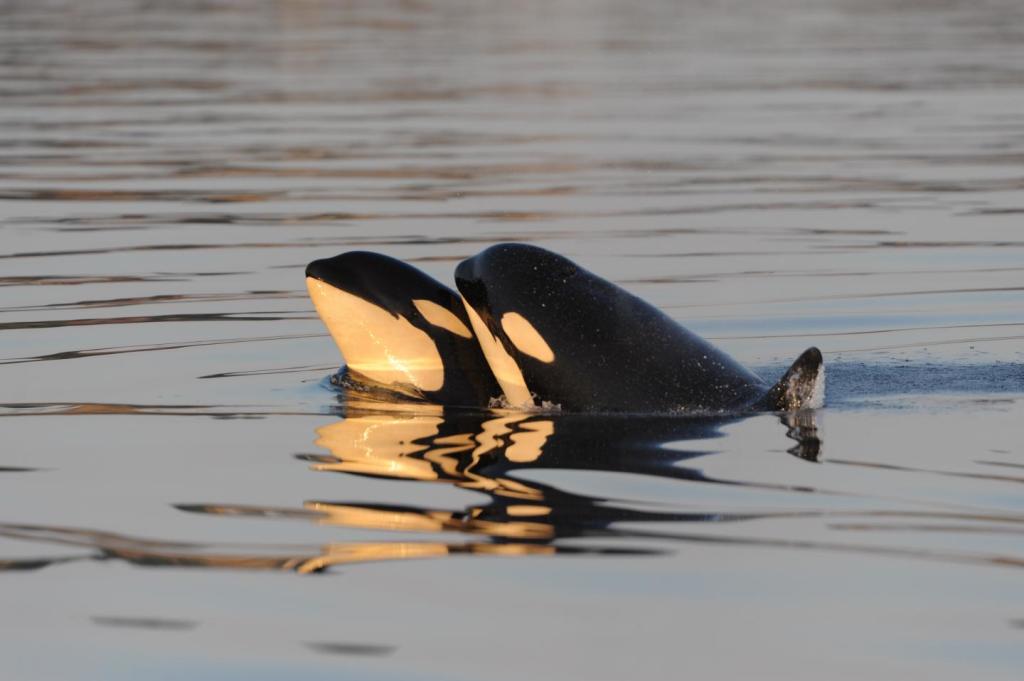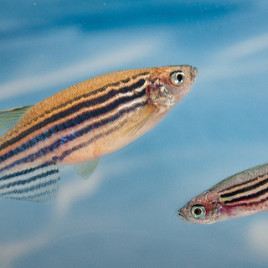
Two killer whales (Image by Kenneth Balcomb, Center for Whale Research)
Killer whales are one of only three species to survive long past their reproductive years. It was thought that the main reason for menopause in female whales was family collaboration, since older females play a crucial role in helping find food for the younger family members. But a new study shows that older females’ calves lose out in an evolutionary conflict with younger females’ calves; the former are 1.7 times more likely to die than the younger females’ offspring. Typically, a female killer whale starts reproducing by age 15 and stop around 30 years of age, but they can live up to 90 years. Researchers say these findings help explain the evolutionary advantage of menopause in the context of family groups.
Authors:
Darren P. Croft, Rufus A. Johnstone, Samuel Ellis, Stuart Nattrass, Daniel W. Franks, Lauren J.N. Brent, Sonia Mazzi, Kenneth C. Balcomb, John K.B. Ford, Michael A. Cant
Corresponding author:
Darren P. Croft, Centre for Research in Animal Behaviour, University of Exeter, Exeter, UK, Email: d.p.croft@exeter.ac.uk
Canadian author:
John K.B. Ford, Pacific Biological Station, Fisheries and Oceans Canada, Nanaimo, BC
Original paper published in Current Biology on January 12, 2016.



